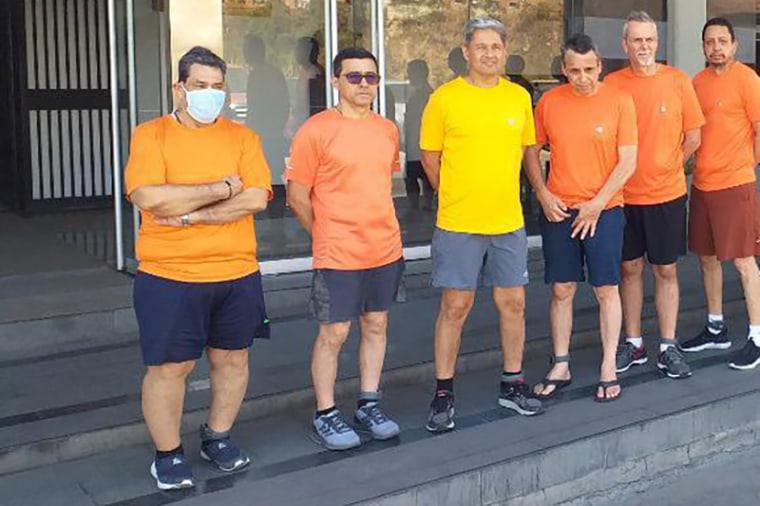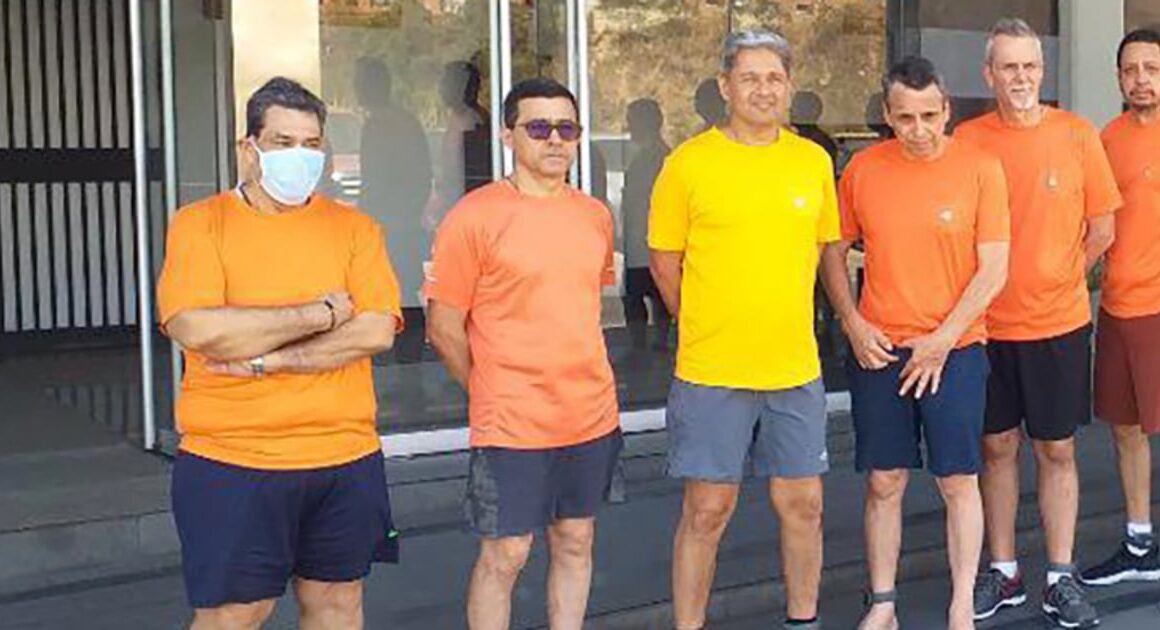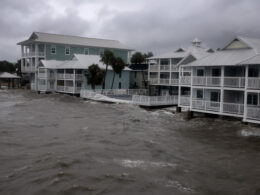On their first full day of freedom Friday, Wall Street Journal reporter Evan Gershkovich and two other U.S. residents released from Russian captivity began heading down the same road to recovery that an American who survived six years in a miserable Venezuelan prison took two years earlier.
José Pereira was one of what became known as the “Citgo 6,” a group of oil executives who were jailed in 2017 by Venezuela on trumped-up embezzlement charges. They spent six years behind bars until they were freed in 2022 in another prisoner exchange engineered by the Biden a dministration.
And like the newly sprung Americans, Pereira’s first stop back in the U.S. was the Brooke Army Medical Center in San Antonio, Texas.
Pereira and four of the five Citgo colleagues he’d been imprisoned with took part in a program called PISA, which stands for post-isolation support activities and was designed by the military to help survivors readjust to regular life.

In an interview Friday with NBC News, Pereira talked about the 10-day “decompression program” that Gershkovich, Paul Whelan and Alsu Kurmasheva have been offered to get readjusted to “normal life” and learn how to deal with the trauma they endured. The fourth former captive, Vladimir Kara-Murza, elected to go to Germany.
“Everybody gets PTSD,” Pereira said. “When you come back from something like this, you are like a bottle of Coca-Cola. You are full of stress. And when you get shaken, you can blow up. You have to learn to deal with it.”
Jason Rezaian, a Washington Post opinion writer who was falsely accused of espionage and spent 544 days in an Iranian prison before he was released in 2016, said, “The psychological scars manifest themselves in various ways.”
“In my case,” Rezaian said, “the deal that released me almost fell through at the last minute. For a long time, I had a recurring dream at least two times a week that I was about to be freed and then the rug got pulled out from under me.”
Rezaian said he expects the excitement over the release of Gershkovich and the others will trigger a return of his awful dream. “But I’m better equipped to handle that now,” he said.
On the first day of the PISA program, the ex-captives will most likely be assigned to a private hospital room and begin what he called “a medical marathon,” Pereira said.
“The only people I saw were doctors and nurses,” Pereira said. “They concentrate on your physical health before they start on your psychological health. I got test after test after test to make sure I was OK.”
Unlike the recently released captives, Pereira said his and his colleagues’ arrival at the Brooke Army Medical Center was cloaked in secrecy.
“They did not want us to feel overwhelmed,” he said. “They didn’t even use our real names in the ER. We were given code names. They gave us tips on how to handle the press.”
Pereira said what he recalls best from his first day was the hot shower he took.
“It was my first hot shower in years,” he said. “I was in there for an hour. I was in there so long the nurse came to check up on me to see if I was all right.”
The next day, he said, “my family came to see me.”
“The base is huge, and I was with four of guys who were in prison with me,” he said. “They kept us and our families together, made sure we were all comfortable. They gave us time to adjust.”
In the days that followed, he said, there were more medical tests and private sessions with psychiatrists and therapists.
“They took a lot of notes,” he said. “They wanted to know about our experience, but I think they also wanted to learn from our experience so they could help others in the future.”
At the end of 10 days, they participated in two group sessions in which they revisited their ordeal while in Venezuelan captivity, Pereira said.
“They made you talk about everything you went through and talk about how you survived,” he said. “They recorded everything because they believed there were lessons that could be learned. Because you were like a prisoner of war.”
Pereira said the experts were particularly interested in what he described as “the phases.”
“There were a lot of ups and downs with how we were treated,” he said. “Together, we could better describe for them the phases of how we were treated. We were political pawns, but we were prisoners. And sometimes we were treated better and sometimes it was worse.”
“The questions they kept asking us were, ‘How did you do it? How did you survive?’”
Pereira said he was not required to stay the full 10 days, but he and his fellow former prisoners all did.
“In fact, they told us we could stay as long as we needed,” he said. “And later, there was another 10-day session at a facility in North Carolina. We all went to that, too.”
Asked if he had any advice for the newly freed U.S. residents, Pereira said, “Follow the programs.”
“Sometimes people think they are really strong,” he said. “You believe that you’re good, but you’re not good.”
Pereira said he was not physically tortured, but the cells themselves were instruments of torture.
“For one year they kept us in a cell we called ‘the submarine’ because it was the size of a closet and there was no window, no fresh air, no running water, nothing,” he said. “And all the time we were starving.”
Pereira said that two months after he was freed, he found himself bingeing on junk food to the point that he landed in the ER.
“I thought I was OK and I wasn’t, and I didn’t realize it,” he said.
Pereira said he still sees a therapist every Thursday.
“They have to understand that this is not a happy ending, it’s a new start, a new life,” he said of Gershkovich, Whelan and Kurmasheva. “I didn’t come back to my old life. I came back to a new life. I was a different person when I came back.”
Rezaian’s first stop upon being released was the U.S. military’s Landstuhl Regional Medical Center in Germany, where he availed himself of the psychological support he was offered.
“I was very cognizant of the fact that I was not ready to be out in the wild,” said Rezaian, adding that he’s the son of a therapist and the grandson of a psychiatrist.
Rezaian, who has been in touch with the families of all four former captives, said writing about their plight and receiving support from others who had been through similar ordeals has been his salvation.
His advice to Gershkovich and the others? Take care of No. 1.
“You don’t owe anybody,” he said.
Sam Goodwin, who had been held captive by the Syrians for two months in 2019, told NBC News that Gershkovich, Whelan, Kurmasheva and Kara-Murza are likely experiencing “a whirlwind of emotions.”
“It was very overwhelming for me when I got out because I was completely isolated while I was in captivity,” said Goodwin, whose book about his experience, “Saving Sam,” is being released next month. “I didn’t realize there were so many people supporting my family and working to free me. Five years later, I’m still saying thank you to people I have never met before.”
,







